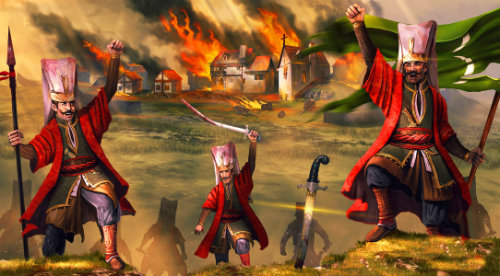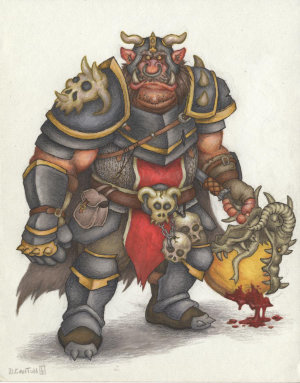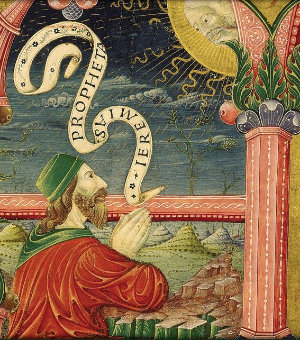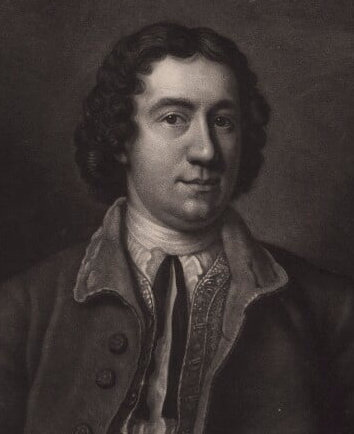Francis Tandy’s 1896 book Voluntary Socialism is one of the classics of market anarchism. Don’t be misled by the title; Tandy, a disciple of Benjamin Tucker, uses the term “socialism” in the sense employed by “free-market socialists” like Tucker, Stephen Pearl Andrews, and, today, Kevin Carson. - Roderick Long
It often happens that men will repudiate certain theological ideas and yet cling with great tenaciousness to corollaries of those ideas. An excellent example of this may be found in popular ideas in regard to the origin of the State.1
While repudiating the idea of the fall of man and even while affirming the doctrine of progressive evolution, many men maintain that the State was originally a voluntary association of individuals for their mutual protection and the maintenance of personal liberty, and that it has since degenerated into a conspiracy against the human race conducted for the benefit of a few individuals. It would be strange indeed if primitive man, with a degree of intelligence scarcely superior to that of other species of the highest orders of mammals, should form a State so far superior to any in existence today.
Although there are no histories of primitive man – perhaps because there are none to mislead us – much is known of the origin and development of the State. An investigation of the various social systems, or lack of such systems among savages in various parts of the world, and the discovery of many implements, monuments and other relics of races which have ceased to exist, teach us that the State was founded in aggression.

So gradual is the process of evolution, that it is impossible to fix the time of the birth of the human race. It is consequently impossible to say what was the earliest form of human association. Many species of the lower animals have regular social systems, the most complex of which are found among the bees and ants. Some species of monkeys form groups of a gregarious, we can scarcely call it a social, nature. A similar state of affairs is found among some savage tribes today, and this was probably the earliest form of human association.
To eat, and not to be eaten, to satisfy their amorous passions like beasts in the thickets, as do now the Papuans, the New Caledonians, and the Andamans; such were in this primitive stage of social development the only objects of human life.— Letourneau, Sociology, p. 540.)2
With but poorly developed mental power, almost destitute of implements, physically inferior to most wild beasts, primitive man was subject to the keenest, and what appears to us the most brutal, competition in the struggle for existence.
 The incessant conflict between the members of each of these groups resulted in the supremacy of the strongest man, and the war between the various groups gave the victory to the strongest and best organized group. Crude, though such organization must have been, since it was nothing more than submission to one or more men whose strength was their sole claim to leadership, yet that organization was frequently of paramount importance in the struggle. Other things being equal, the most perfectly organized group would naturally be victorious in time of war. As the members of the defeated groups were usually killed and eaten by their conquerors, natural selection favored the development of organization.
The incessant conflict between the members of each of these groups resulted in the supremacy of the strongest man, and the war between the various groups gave the victory to the strongest and best organized group. Crude, though such organization must have been, since it was nothing more than submission to one or more men whose strength was their sole claim to leadership, yet that organization was frequently of paramount importance in the struggle. Other things being equal, the most perfectly organized group would naturally be victorious in time of war. As the members of the defeated groups were usually killed and eaten by their conquerors, natural selection favored the development of organization.
Militant Society
With the development of human intelligence, the recollection of past experience led men to take thought for the morrow. This became manifest in rude attempts at agriculture and kindred occupations. Henceforth the lives of captives were spared on condition that they performed such labor as might be required of them. They became mere domestic animals whose very lives were in the hands of their masters. They were spared only because they were worth mote alive than dead. The introduction of slavery completed the first great step in progress, and from it all known forms of civilization have sprung.
From this on society became more complex. The smaller groups ceased to exist. Some were entirely exterminated. Others consolidated into larger groups in order to protect themselves better and to make war upon their neighbors with greater success. Large tribes were thus formed which were, with very few exceptions, essentially warlike in character. In times of peace between the tribes the warlike spirit often found vent in severe internal dissensions. This greatly assisted the formation of different castes and ultimately tended to complete the organization of the tribe. It is somewhat strange that these internal struggles should, by developing a certain organization, enable the tribe to overcome its competitors in the struggle for existence. The religious superstitions of primitive man began to invest the rulers with many of the attributes of divinity. In Peru, for example, the Inca was looked upon as the son of the supreme God. This added many powerful incentives to obedience and, what is a pre-requisite of obedience, confidence in the commander. As it assisted the centralization of power it may be looked upon as a “favorable variation” and its widespread existence is only what might be expected.
Traditions, superstitions and custom soon formed around this organization which was founded in violence and aggression, and so the State developed.
As the idea of private property became general, people were punished for committing crimes against it. In early social forms the two great crimes of this nature, theft and adultery, were punished long before crimes against life and person. But even these crimes were seldom punished when committed against the property of inferiors. “A man has no rights that his superior is bound to respect,” seems to have been a fundamental principle of jurisprudence even at that early date. It was not, as some have imagined, the invention of the Supreme Court of the United States.3
The difficulty of being able to make use of a very large number of slaves in countries which were beginning to be relatively thickly settled, gradually led the victors to permit the conquered people to continue to occupy their lands, on condition that they paid an annual tribute. It was thus that the Romans spread their dominion over the ancient world and sowed the seeds of the Feudal System.
These earlier stages of social development form what Spencer calls the Militant type of society – a type under which warfare is the great element of competition. During these periods the tendency was towards greater centralization of power in the hands of the State. Natural selection developed organization of the non-fighting as well as of the fighting members of the community. The former were the serfs or slaves of the latter, and it was their duty to keep the armies well supplied with food, clothes and equipment. A tribe so equipped would be far better able to fight than their less fortunate enemies.
Under such a system the warrior was of course chief, and being chief he soon became the richest. This again added to his power by increasing the number of his retainers. At his death his son usually inherited this wealth and power, which necessitated this following the occupation of his father. These and similar forces operated to make all occupations hereditary.
Incessant conflict between different tribes precluded the possibility of commerce between them, so the “fostering of infant industries” and “patronizing home production” was essential. Associations of individuals, except such military associations as were under State control, were injurious to the more perfect organization of the State, and consequently were not permitted.
The nature of the militant form of government will be further elucidated on observing that it is both positively regulative and negatively regulative. It does not simply restrain; it also enforces. Besides telling the individual what he shall not do, it tells him what he shall do. — Herbert Spencer, Principles of Sociology, v. 2, p. 574.)
The development of the State and the restriction of individual liberty; the growth of compulsory association and the suppression of voluntary co-operation, coercion, aggression, regimentation, rigidity, stagnation, these are the fruits of the militant type.
But the militant type contained within itself the germs of its own destruction. The protection of a man’s property from the cupidity of his inferiors begat the idea of protection of men from the rapacity of their superiors. It took many centuries for this idea to develop, even to the extent it is practiced today. Many attempts to gain freedom failed, many pioneers lost their lives. During times of civil war opposing factions were often desirous of adding to their strength. In order to do this they promised greater freedom to the industrial classes. Often these promises were violated, often they were but partly fulfilled. But by occasional uprisings, perpetual demands and incessant supplication the powers of the State were gradually restricted and the liberty of the individual was increased.
Industrial Society
With the increase of liberty, industry began to develop and commerce, instead of warfare, gradually became the main element of competition. This brings us down to the dawn of the Industrial type of society, which commenced in England early in the Tudor period and has grown ever since with varying fortunes. The great changes that have taken place have been progressive insofar as they have tended to the development of the industrial type. That is to say, the development of industrialism is the decay of militancy, since the characteristics of the one are the antithesis of the other. Future progress must be looked for in the development of individual liberty, the removal of restrictions, the growth of voluntary association and the decay of the State.
It is curious to note that in existing forms of society, State regulation of the actions of individuals is greatest in the most militant countries. In Germany we find a large standing army accompanied by compulsory military service, compulsory insurance, compulsory education and State regulation of all kinds. Much the same conditions exist in Russia in a more intense form, and in a less degree in France. England is less militant and the idea of liberty is better developed. Switzerland manifests the highest development of any European country and has not been engaged in war for centuries.
Sometimes State regulation is greater in any given country than it is at other times. Close observation reveals the fact that increased regulation almost always follows military operations. A good example of this is found in the United States. Previous to the war of the rebellion4 the love of individual liberty was very great among the white population. After the war State activities increased wonderfully. The G.A.R., the S.O.V.5 and similar societies have fostered this militant spirit and red flag patriotism, until now every man who has a grievance asks the State to interfere in his behalf. The Prohibitionist, the Protectionist, the Greenbacker, the National banker, the Coxeyite, the Populist and thousands of others are victims of this species of mania.
It is but natural that any manifestations of violence and force on the part of the Sate should result in an increase if its powers. It is founded on violence and aggression, and draws its strength from them. The bully is always a little more arrogant after thrashing one of his victims. Successful military operations beget a spirit of hero-worship, pensions are freely bestowed, military men are appointed to civil offices and all classes of society are permeated with a spirit of militancy.
As the development of industrialism and all ideas of modern progress are dependent upon the dissolution of the State, we must look upon that organization as essentially anti-social. In its purity it is simply an organization for the coercion of the many by the one, or of the minority by the majority – it matters not which. Insofar as its power to coerce has been restricted just insofar has it been dissolved. Further progress is only to be found in the same line.
As I have suggested above, the State is in a large measure fostered by the religious sentiments of the community. In most early forms the sovereign was looked upon as the representative of God, as in China and Ancient Mexico. In Peru and Egypt he was even regarded as a God. “The divine right of kings to govern wroing” was almost universally recognized in Mediaeval Europe. today we are taught to believe in the divine right of the majority. “Vox populi vox Dei”6 is still the motto of our text books of civil government. The very attributes of divinity are still accorded to the State. All laws for the suppression of vice, the protective tariff and every act of our legislative assemblies, except those for the protection of life and property, pre-suppose that the State is infallible and omnipotent. What power but one that lays claim to infallibility can consistently dictate to the individual what he shall do and what he shall not do, what he shall or what he shall not eat and drink, and the thousand and one things that the State directly or indirectly dictates to us today? What power that is not omnipotent could enforce these regulations? And if they cannot be enforced what is the use of making them?

If not of divine origin, what is this intangible power? It does not depend upon the existence of any one individual in a monarchy, or of any body of legislators in a republic. When the Czar dies, or when the term of every legislator expires, the State still lives, intangible, inscrutable. We often find men living under a monarchy who condemn most strongly the acts of their sovereign, and are yet stout advocates of that form of State. So in America, we find men who condemn ever Congress they know anything about, and yet howl lustily about the sacredness of “our glorious institutions.” Often will a man maintain that our legislative halls are filled with men whom he heartily despises; he will assert that the protective tariff is a tyrannical imposition on the people; yet he will be willing to punish the smuggler for disobeying a bad law, enacted by a set of disreputable politicians, just because it is necessary to obey the mandates of the State.
The State is of God or it is nothing. To deny the existence of a God who delegates his powers to the rulers on earth, is to deny all the pretentious claims of the State. From a very different standpoint the “Civilta Catholica” of Rome reaches this same conclusion. “ ‘We want no God!’ declared the men of 1789, and they pout liberty in the place of the Creator. The motto ‘No God, no master,’ is but a natural consequence of this.” (Translated in Literary Digest, 15th March, 1894.) This theory is supported by the fact that the dissolution of the State has followed the decay of religious belief. It was not till after the Reformation that the denial of the divine right of kings, as manifested in the beheading of Charles I., was possible.7 The development of Free-thought preceded and accompanied the French and American Revolutions.
In the higher forms of life the individuals epitomize the life history of the species. “The higher structures passing through the same stages as the lower structures up to the point when they are marked off from them, yet never becoming in detail the form which they represent for the time being.” (Clodd, Story of Creation, p. 102.) In like manner we find that States which have recently come into existence in a complex condition manifest many if the characteristics of lower forms. The British colonies and the United States clung to slavery long after it has been abandoned in every other civilized country. The great reversion to militancy in this country, while directly caused by the late war, could not have been as intense in older States under similar conditions.
In newly settled districts on the frontier of civilization the far greater value that is placed upon property than upon human life, causing theft to be punished with death while the murderer is permitted to go free, is very characteristic of the earliest forms of society. As progress is very rapid in such places these characteristics are soon lost and a relatively high form of State is organized. But even in then more densely settled portions of the New World many reversions towards the militant type are found. The marvelous growth of secret societies and the elaborate regalia worn by their members are clearly characteristics of a militant race. Nothing seems to delight the average American more than to strut around in a gaudy uniform. Even in professional societies, where regalia is manifestly out of place, it seems almost impossible for them to relinquish this custom altogether. Instead of a uniform, large badges, made of colored ribbon, are worn upon all great occasions. This is practiced among all classes in the United States. In Europeans countries “playing at soldiers” is usually left to children.
Side by side with the greatest commercialism, we see a spirit of jingoism manifested that would put a warlike European nation to shame. In spite of the lack of a large standing army, men delight in titles of all kinds, but military titles in particular. Glaring absurdities and contradictions of this kind are seen on every hand, and have puzzled nearly all our foreign critics. They are nothing but the symptoms of national babyhood which are destined to be outgrown as maturity is reached. While they exist they make the United States one of the most interesting, though one of the most annoying countries to study, and prove beyond question its kinship with older forms of State.
The State is founded in aggression. Its main function is the suppression of individual liberty. It claims absolute jurisdiction over all within its borders. It derives its power from the superstitious veneration of its subjects, and governs and coerces them in proportion to the depth of that superstition.
But gradually superstitions decay. A few members of the community demand more liberty, and they obtain it when they become sufficiently strong to enforce their demands. The State is the machine of the militant type and is essentially anti-social in its nature. It must gradually dissolve as the spirit of industrialism gains strength. Voluntary association cannot be perfected while the State exists, for each is antagonistic to the other.
Notes
1 It should be borne in kind that, except where the context manifestly implies a different use, I use the word State in its widest sense – “the body politic,” as Webster defines it. This definition is given provisionally until its nature is further investigated.
2 Editor's note: French Fourierite anthropologist Charles Letourneau (1831-1902), in Sociology Based Upon Ethnography (1880). – RTL
3 Editor's note: A reference to the infamous 1856 Dred Scott decision, ruling that blacks were “beings of an inferior order” with “no rights which the white man was bound to respect.” – RTL
4 Editor's note: This is actually the official legal designation of what is more usually called the U.S. Civil War or the War Between the States, 1861-65. – RTL
5 Editor's note: “Grand Army of the Republic” and “Sons of Veterans” were popular Union veteran groups. – RTL
6 Editor's note: “The voice of the people [is] the voice of God.” – RTL
7 Editor's note: Actually the right to resist or overthrow unjust monarchs was well-established in pre-Reformation political theory. – RTL
